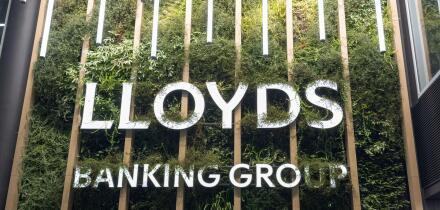Donald Trump blinked. On Wednesday the US president announced a 90 day pause on all but one of his market-crushing additional tariffs, opening the floodgate for issuance with a slew of deals on screen first thing Thursday.
But across the fixed income and equity markets, participants were still uneasy at how quickly the world was turned on its head, and investors are widely expected to demand a bigger spread buffer to make sure new issues go smoothly.
In some cases, new issue concessions could double from where they were this time last week.
“We’re not out of the storm yet, this feels more like the eye of the storm,” said a senior investment grade credit portfolio manager at a major investment house in London. “Buying is going to be focused on the high quality names and the short end. The [IG corporate] deals we’re seeing in primary today are low beta, but they are not [EU] domestic names.”
The investor added that new issue concessions in the high grade corporate bond market will probably rise from “the context of 5bp to the context of 10bp”.
Other fund managers agreed that Trump's policy pause was not a sign to re-enter the markets.
“I am not really any more confident,” said another fund manager in London. “It’s been mental warfare for people like us, there has been an unbelievable amount of volatility. Confidence in the market and in the US administration has been severely shaken.”
An emerging markets fund manager said: “Systemic collapse has been averted, sure, but crisis and recession risk are still very real. Absolutely nothing will happen in primary. Nothing has been resolved, literally nothing. The US and China aren’t even talking.”
Baseline for all but China
After European markets closed on Wednesday, Trump announced that implementing all additional tariffs would be postponed for 90 days, with the exception of China.
The 10% universal tariff, first revealed on April 2, will still apply. The tariff on Chinese imports of 125% — increased from 104% on Wednesday morning – combined with a reciprocal 84% tariff on US imports into China, effectively means there is a trade embargo between the two countries for all but the most essential goods.
But the news that punitive tariffs for other major trading partners have been lifted, including the European Union and major Asian manufacturing hubs for US companies like Vietnam, sent risk assets soaring.
“Advising issuers has become tougher,” said one senior SSA origination banker. “All we’ve seen is erratic behaviour [from Trump and from markets] — and hats off to those issuers who have tried and got as much funding done, for exactly the sort of circumstances that we are having now.
“Now, issuers need to be nimble and be ready to issue when there’s a stable backdrop. Looking at long term, or even looking to issue in two or three weeks for whatever reason — that’s clearly not how it works anymore. You can’t predict what’s happening or what’s coming.
“Be ready as a window of opportunity is presented, and you have to be quick – that’s probably my only advice.”
Selective reopening
Parts of the primary market sprang back into life on Thursday, with deals in the SSA, covered bond and investment grade corporate bond markets.
German federal state Mecklenburg-Western Pomerania, French covered bond issuer Caffil, Australian toll road operator Transurban and Japan Tobacco were first out of the gates.
Caffill’s 10 year maturity had some FIG bankers scratching their heads. “It’s good that Caffil had the balls to come to the market,” said the FIG syndicate banker. “It seems to be working well.”
However, they added that they were “slightly positively surprised — I would not have foreseen that a 10 year covered bond would be the trade of the day. As a global investor, what do you want to buy? Sell US Treasuries and buy euro covered bonds? Maybe that’s the trade?”
The senior FIG market, however, remained notably dormant. “One day does not make stability, but let’s see what today and the next few days bring,” said one FIG syndicator, adding that “things are looking better than they were 24 hours ago”.
Most likely a senior deal will be printed when the market reopens after Easter, the FIG banker continued. “There is a pipeline [of capital trades] but we gather they had been pushed back and would be surprised if any were brought forward [to next week],” he added.
Riskier ends of market still embattledThe high beta parts of the capital markets, such as emerging markets and equities, are still preparing for rough patches, despite the US tariff postponement. “The US has been the source of stability in the global economy, but there is now no consistent policy and no understanding of what the goal is, what the plan is,” said an emerging market corporate bond fund manager in London. “Trump and his team can perform whatever mental gymnastics they like, but the bottom line is, he has blinked first. They saw what happened in the bond market and realised it was not going well.” In the equity market, there is still a strong sense of uncertainty. “It's very much up in the air,” said an equity capital markets banker. “I don’t think it changes anything, it just proves there’s going to be a lot of volatility in the market". He added that "it's a step in the right direction, but it's very hard to see how solid or how realistic these moves are. There could be a window for quick to market trades where you get your deal done in a day. It could happen but I think post-Easter we’ll see deals getting done, but I don’t necessarily see IPOs getting done. "The problem is if negotiations break down after 10 days, then the market just tanks again and if you’re in the IPO process the deal just dies. Headline risk right now is going to be present until this tariff situation is resolved." |
In the secondary credit market, there has been some selling as investors de-risk portfolios. "The secondary flows in this market are pointing to a bit of selling into the strength as investors are taking advantage of this rally. It clearly shows people are still worried about mid-term outlook," said one head of FIG syndicate.
He added that the selling was across all unsecured asset classes in credit, including corporate bonds, and that it was also being driven by anticipation of fresh issuance. "The market is not broken but definitely from the secondary perspective people are using this opportunity to lighten up. They expect primary to pick up and these [deals] definitely won't be coming flat to fair value, they will be offering concessions."
The bulls are back in town
Others were even more bullish on what the US row-back on tariffs meant for primary markets.
“Everything is back on for issuance,” said an SSA debt capital markets banker. “We have had so many issuers postpone. There were a number of euro issuers looking at the dollar market before this from a cross-currency swap perspective that looked good. We will have to give it a day to see what the pipeline looks like.”
The banker added that the market in euros had been solid throughout the last week. “The EU was not the best trade, but it was still €8bn and in the environment that it was in, it is still a positive message. Next week will be busy in both currencies.
“If I asked some investors, yes, you would have to pay more premium," he added. "If you ask me though it’s a no. For a €3bn-€4bn trade you still need to give a concession of, course. But the EU didn’t end up paying 6bp-7bp or anything like that. The German states can even go through the market paying basically no concession.”







